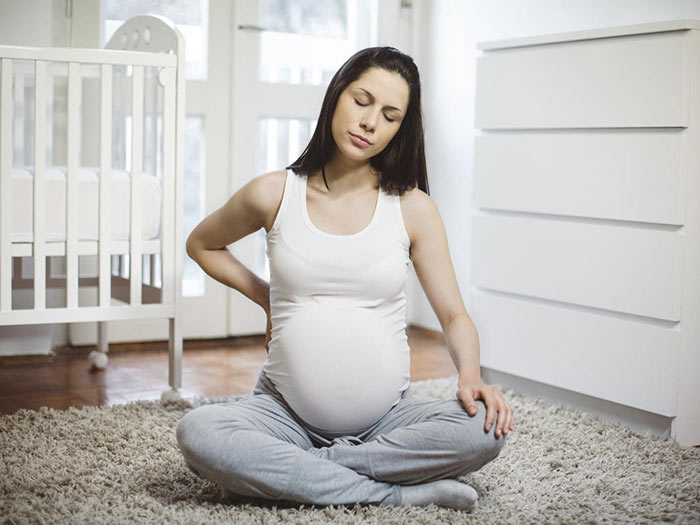
No woman would have experienced an incredibly smooth pregnancy and labour a couple or more of discomforts such as an achy back and tender breasts or at least morning sickness. Symptoms of discomfort due to pregnancy vary from woman-to-woman. It could be swollen feet, heartburn, or an upset stomach, vomiting, nausea backache or tender breast. There are ways to deal with these common pregnancy aches and pains.
The milk ducts start growing in preparation for breastfeeding once you get pregnant. This will result in breasts that often feel tender, swollen and ‘fuller’. There could also be tingling sensations. Breast changes also include nipples becoming more prominent, sensitive or even sore. It is best to choose cotton bras or those made from natural fibres. It is better to buy a bigger bra as the breasts continue to grow larger and fuller. It is good to wash your breasts with warm water and a mild soap that will not cause dryness.

Fatigue is a common symptom during pregnancy as the body is undergoing too many physical and mental changes at one time. It is common to feel exhausted throughout the pregnancy.
The following are a list of ways to cope with the fatigue you may be experiencing.

The exact reason for this happening has not been identified so far in spite of so many technological developments. There are some possible theories that it could be some combination of the many physical changes taking place in a pregnant woman’s body. Most of the time morning sickness is worse in the morning and will slowly ease up over the course of the day. But for some women they can strike at any time and last all day long. This nausea and/or vomiting during the first trimester affect up to three-quarters of pregnant women, and about half have only vomiting. In this, about half of the women who experience nausea feel complete relief around 14 weeks. It takes another month or so for this condition to ease up. A small percentage of women have signs that persist continuously until delivery.
Usually, morning sickness doesn’t affect the baby. However, in cases of excessive vomiting and not being able to have a healthy diet, then it might lead to some serious health issue. Here are some steps to and alleviate your symptoms:

The hormone hCG increases the blood flow to your pelvic area. The uterus puts pressure on your bladder in the first trimester of pregnancy, giving it less room to store urine. You can do the following to help you with the discomfort
It is the most powerful creation to have life growing inside of you.There is no bigger gift